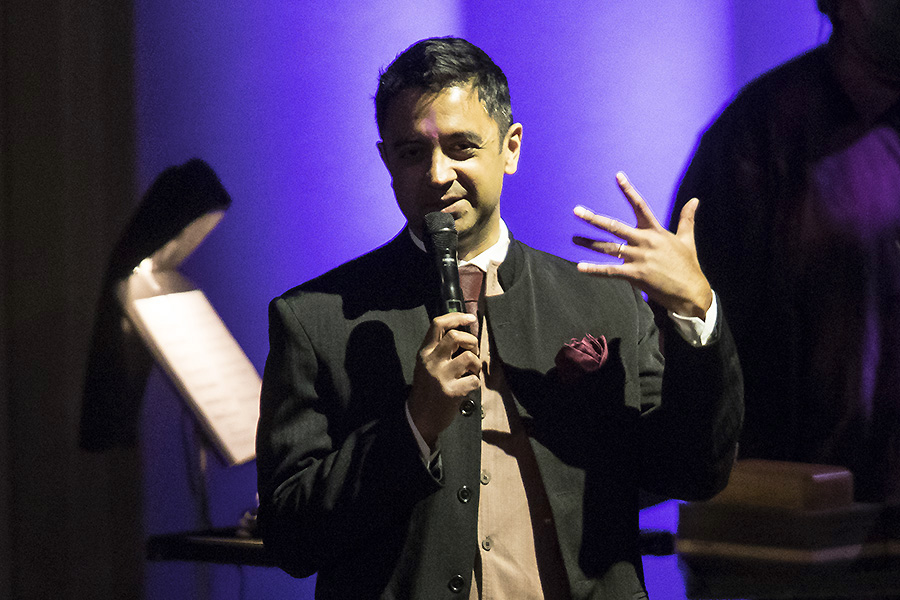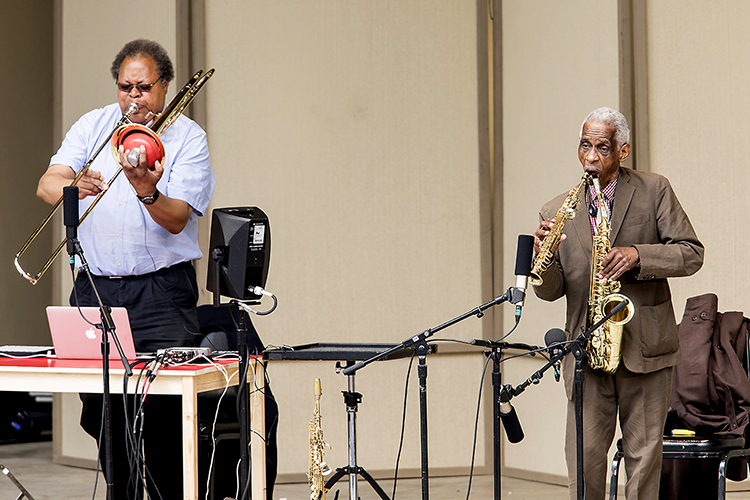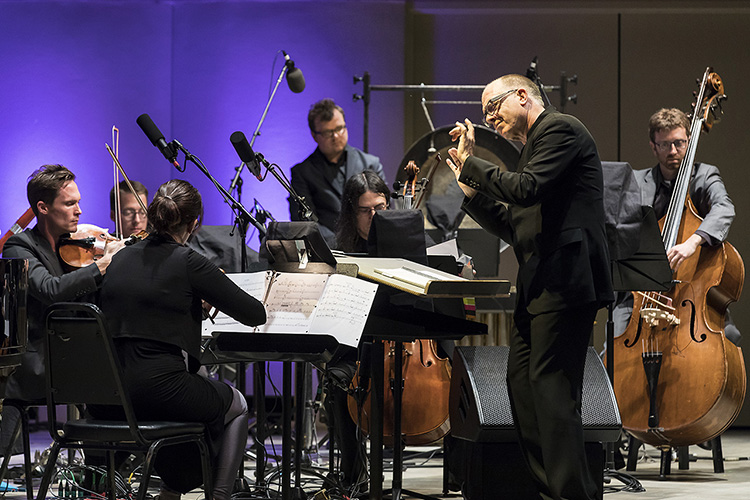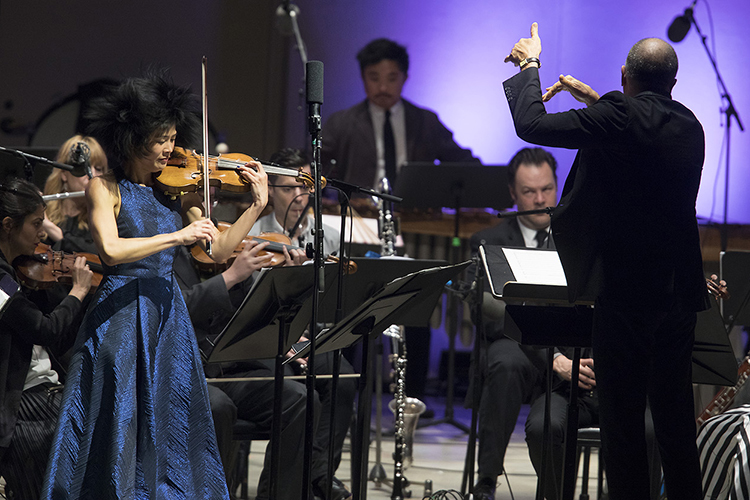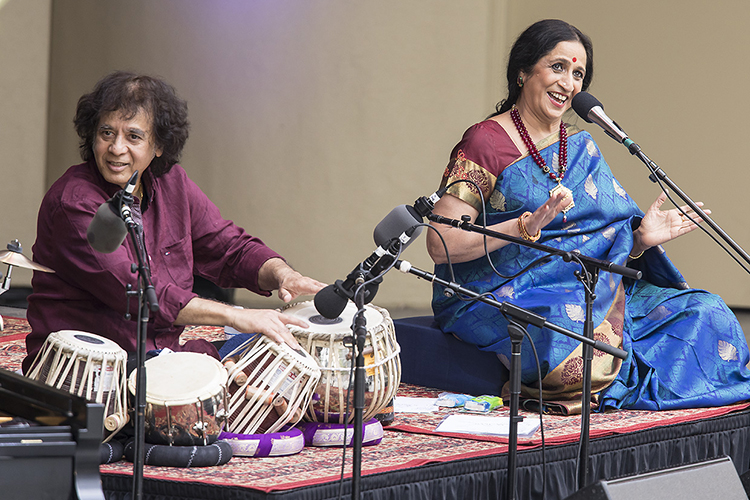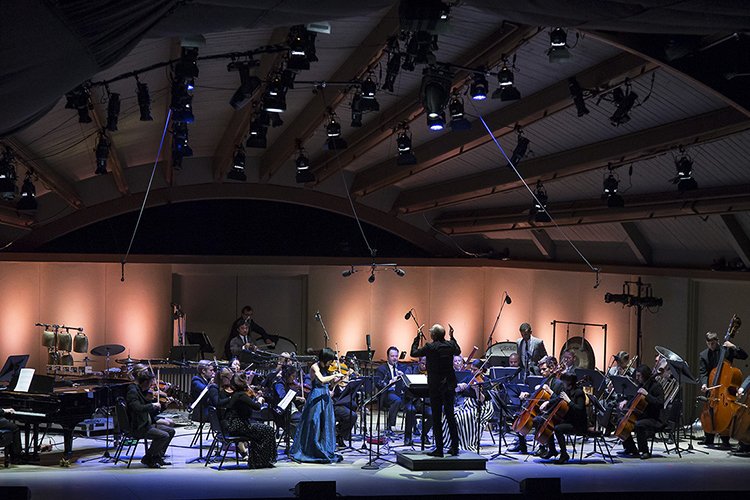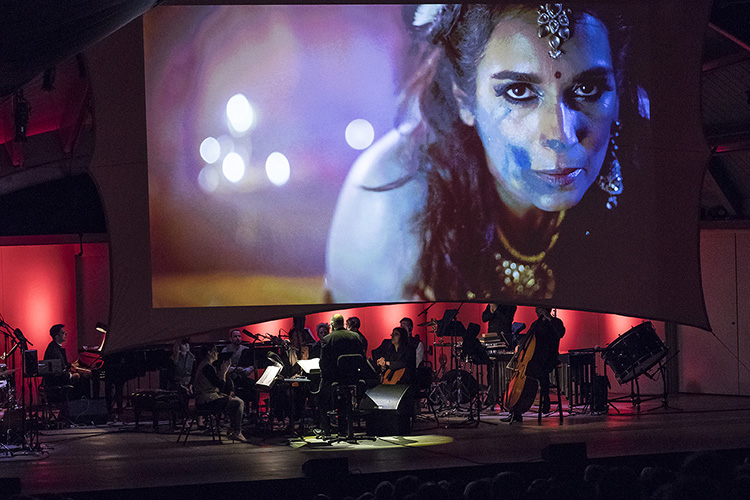Pianist found his path at Berkeley, returns to lead Ojai music fest
When Vijay Iyer came to UC Berkeley in the early 1990s, he didn’t know he would go on to become what the New Yorker referred to as 'the most lauded piano player in jazz'
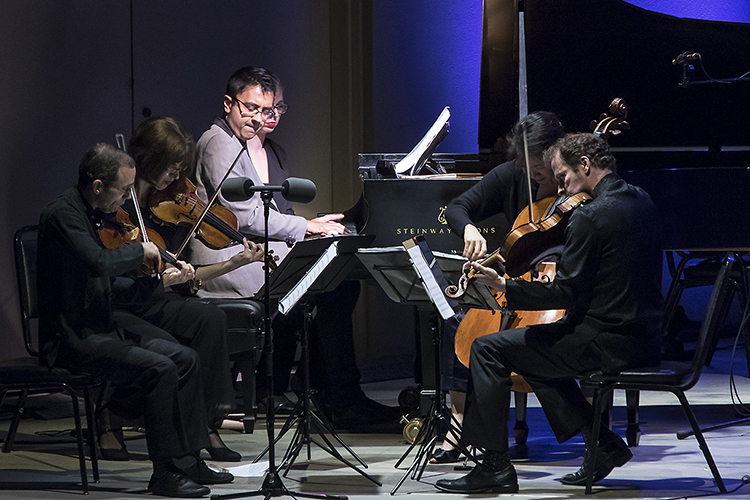
June 15, 2017
When Vijay Iyer came to UC Berkeley in the early 1990s, he didn’t know he would go on to become what the New Yorker referred to as “the most lauded piano player in jazz.”
Iyer was 21, and a doctoral student in physics. His trajectory was set. But after a couple years, he knew he had to follow a new path. “Things started to dawn on me, like, ‘Hey, they might let me make music in the world,” he says. “There might be a space for me to do that. That’s when I made the change.” He went on to receive an interdisciplinary Ph.D. in the cognitive science of music in 1998.
Now, nearly 20 years later, improvisational musician and composer Iyer is back at Berkeley, this time as the music director of the 2017 Ojai Music Festival, which has partnered with Cal Performances to bring Bay Area audiences the seventh season of Ojai at Berkeley. The annual music festival, founded 70 years ago, presents music, symposia and educational programs that emphasize adventurous music by mostly contemporary composers over four days in June.
This year, Iyer will be joined on stage for four concerts by renowned performers and composers, from violinist Jennifer Koh to jazz saxophonist Rudresh Mahanthappa to composer and trombonist George Lewis.
Berkeley News spoke to Iyer about his creative process, what he thinks makes a talented musician and how he struggles with writer’s block.
Berkeley News: Can you describe your creative process?
Vijay Iyer: With composing — the word compose just means put things next to other things. So you could compose a salad. It’s not a big deal. It needs to have these nutrients in it. It needs to be this color in the end. It needs to have a certain substance to it, like you want it to get you through the day somehow. Those are all just basic human questions, and the fact is that when one makes music, you’re asking those same kinds of human questions about balance and about objectives, but in the process itself — you work with whatever materials you have at hand to make it happen.
When you begin to compose something, do you ever get stuck?
Yeah — I think that’s kind of a natural part of the process. You know, when I was writing a violin concerto, I was kind of faced with this, ‘What am I doing and why? How do I even begin? What is the raison d’etre for this piece? Why should I even get started?’ Because if I don’t have a sense of what its motivations are, I can’t just start scribbling or doodling, like, ‘Oh that sounds pretty good.’ I don’t just want stuff that sounds pretty good. I want it to be there for a reason.
I think writer’s block — it’s not that nothing is happening during a moment like that. It’s that something is happening on a subconscious level, and you kind of have to just sit with it and be patient and trust the process. I know that it can be paralyzing for people, and there’s a lot of anxiety that comes with it, especially if you have a lot of deadlines. I’ve been there.
You’re highly regarded in your profession. Do you ever feel pressure to keep getting better and better?
Everything I’ve done has always felt like I’m just barely catching up to where I’m supposed to be. I feel like there’s a lot of remedial work I still need to do. I think I’ll always feel that way. I didn’t know I would have a life as a performer. Or a life in music. I didn’t know that until I was 23 in grad school at Berkeley. That’s when people like David Wessel, my graduate adviser, caught me in that moment. It was a pivotal year or two, when I woke up to something else. David, who passed away in 2014, was a pioneer in computer music and a researcher in music perception and cognition. He founded the Center for New Music and Audio Technologies on campus. He introduced me to George Lewis, who I’m performing with tonight. We’re kind of creating in line with what David taught us, which is sensitive control over sound, using gesture, creating an environment that one as an improviser can explore in real time sonically and interact with. So we’re co-creating this piece using the principles he created.
Listen to “Emergence” for trio and orchestra.
In your opinion, what makes an incredible musician?
To be an incredible musician, mainly they have to be an incredible listener. That’s most of what’s involved in making music, is listening to what’s happening around you and finding ways to relate to it. That’s true if you’re someone who plays Beethoven string quartets or someone who experiments with found sounds, collaging using electronic means. It’s really about situating yourself as a listener in your environment. It also means how you listen to others, how you relate to others. How you empathize with others. You don’t want music to be above or outside of an emotional experience. It’s about connecting with people. It’s about forming an actual human link with someone or with a whole roomful of people, you know. So there’s something magical and joyous about it. And there’s something unpredictable and a little bit vulnerable about it. It puts you in the moment.
Do you have advice for newcomers on how to listen to the performances this weekend?
The most important thing to remind ourselves, because we’ve been almost brainwashed to forget, is that music is born of human action. We tend to think of music as a sort of substance that flows irrespective of human presence because for the last hundred years, it has been. We kind of stockpile recordings and forget where they came from and put our iPods on shuffle. Music just kind of appears, and we don’t have to think about the circumstances of its creation. Sometimes as listeners, we have to remember what music is about is actually shared human presence. If you start from there, I think a lot of other things will become apparent.
For more on this year’s Ojai at Berkeley performances, visit Cal Performances.
